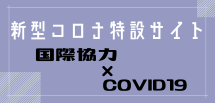Need for thorough compliance with International Health Regulations (IHR)
IDJ ENGLISH
Need for thorough compliance with International Health Regulations (IHR)
Lessons learned from COVID-19 and Japan’s role to promote international
cooperation
Hon. Keizo Takemi
Member of the House of Councillors
『International Development Journal』2020 June edition
Japan has been advocating global health initiatives through G7 Summits and other international conferences. IDJ interviewed a member of Japan’s House of Councillors, Keizo Takemi, a noted figure in the global health community and regarded as a “political catalyst” in the field of healthcare, to elicit his opinion on global health, including measures against infectious diseases and future challenges for Japan.
Inadequate domestic measures being the biggest blind spot
The “G7 Ise-Shima Vision for International Health” announced at the 2016 G7 Ise-Shima Summit presented four agendas that promote global health initiatives. Among the four, one was on strengthening the global health framework for public health emergencies, and another on strengthening health systems to achieve Universal Health Coverage (UHC).
As practical measures, the former called for the establishment of a new collaborative scheme between the World Health Organization (WHO) and the United Nations Office for Coordination of Humanitarian Affairs (OCHA) in the event of an infectious disease outbreak, and the strengthening of the core capacity of the International Health Regulations (IHR) established under the WHO Charter. Core capacity refers to the minimum ability required for hygiene management during normal times and emergency management upon outbreaks of epidemics.
In response to this, it became “common sense” in the field of global health to establish a public health crisis management system. This and the achievement of UHC are considered two sides of the same coin. The presence of Japan, who led these movements, also increased.
However, the current spread of COVID-19 has highlighted challenges in the existing global health system. One is that countries are not all adhering to the IHR. For example, the IHR imposes countries to notify WHO in the event of a potential public health crisis. However, since there are no penalties or specific measures for violation, some countries prefer not to notify WHO if they find it disadvantageous to their interest. This is not limited to China.
In Japan as well, the current pandemic revealed insufficiency in domestic core capacity. For example, Japan does not have a specific policy for dealing with epidemics of small and medium-sized infections. I have been advocating for more concrete measures for some time, but nothing has materialized as of yet. Moreover, there are no specialists of infectious diseases in the Cabinet Secretariat. We should have a permanent crisis management supervisor and a team of specialists in charge of infectious diseases; and they should take the lead in information gathering and analysis at home and abroad, as well as oversee domestic measures.
Japan suffered only a small number of domestic cases of Severe Acute Respiratory Syndrome (SARS) in 2003, and even during the outbreak of the Novel Influenza in 2009, the mortality rate per 100,000 population was 0.16 in Japan while the rate scored 1.32 in Canada and 0.53 in South Korea.
These past experiences and boasting high quality community healthcare, there seemed to have been a false sense of security and overestimation in Japan that "we can readily deal with infectious diseases." We failed to notice any deficiency in the domestic system. This was our biggest blind spot.
On the other hand, South Korea and Taiwan succeeded in controlling COVID-19 early on and were able to avoid overwhelming their medical system. Learning from their past experiences, including SARS, they had built systems for testing, contact-tracing of infected people using digital technology, and accommodating infected patients in hospitals, already implemented in ordinary times. In the event of an emergency, the rules were already in place to quickly shift the system of health care services to accommodate the outbreak.
Promoting the Asia Human Well-Being Initiative
A future challenge in global health will be to ensure that each country adheres to the IHR. Furthermore, it is necessary to reform WHO. One is to strengthen the capacity of the WHO country offices. Since many people at WHO want to work at the headquarters, where great welfare benefits are provided, excellent human resources tend to gather at the headquarters with only rare transfers. Creating a personnel system that promotes balanced placement of excellent human resources is indispensable.
Japan should continue to demonstrate leadership in the field of global health. Among the developed countries, the US position in infectious disease control is weakening, and Japan’s role is becoming ever more important. The Government of Japan decided to contribute 10.6 billion yen to the “Coalition for Epidemic Preparedness Innovations (CEPI)” (Headquarters: Norway), through its 2020 supplementary budget. CEPI is an international public-private partnership launched in 2017 to promote vaccine development. In addition, the Government of Japan also decided to contribute 11 billion yen to Gavi (Global Alliance for Vaccines and Immunization), the Vaccine Alliance to support its various activities, including the transportation of vaccines.
It is also important to promote the “Asia Human Well-Being Initiative” that I advocated and launched in 2016 with a global health perspective. Under this initiative, in order to address the issues of aging in Asia, we are promoting knowledge-sharing through the export of Japanese nursing care models and development of nursing care personnel in the region. These efforts are also contributing to the improvement of the quality of medical services, which is one of the challenges for achieving UHC.
For example, the initiative is supporting the strengthening of the international division of the Pharmaceuticals and Medical Devices Agency (PMDA). PMDA, which oversees approval of pharmaceuticals and medical devices, established an Asia Training Center for Pharmaceuticals and Medical Devices Regulatory Affairs (PMDA-ATC) in Japan to offer training to personnel working in drug and medical device regulatory authorities in Asian countries. In the future, we plan to expand the capacity of the center and dispatch PMDA staff to Asian countries. It also seeks to convene meetings of regulators in Asian countries to encourage regional coordination in drug regulation.
In addition, the initiative aims to build a network of infectious and non-infectious diseases by developing human resources and providing equipment for clinical trials in Asian countries. These efforts can serve as a basis for joint development of medication and vaccines for COVID-19, and can also nurture common awareness and cooperation in global health among Asian countries. If Japan is to take leadership in global health, it is important to work with developing countries, even at the expense of intellectual property rights. It is not right to pursue hegemony. In that sense, while giving due respect to the role of China, we hope to deepen cooperation through the Asia Human Well-Being Initiative.
Making the Japanese “CDC” the cornerstone of crisis management
In Japan, it is essential to reexamine the domestic crisis management system. As part of that, why not set up an organization like the Centers for Disease Control and Prevention (CDC) in the US to carry out front-line epidemiological investigations and to accumulate technological capabilities to prevent the spread of infection? Let’s create a Japanese CDC as the cornerstone of a new crisis management system by combining the infectious disease control function of the National Center for Global Health and Medicine (NCGM) and the National Institute of Infectious Diseases (NIID) under the Ministry of Health, Labour and Welfare.
In doing so, it is necessary to consider the issues currently confronted by NIID, such as securing sufficient budget and strengthening authority in epidemiological surveys. The current budget of the NIID is about one-third less than what it was 10 years ago. As a result, it has not been able to train field epidemiology specialists who can serve as experts in epidemiological research. As for epidemiologic investigations, the NIID has limited research authority. For example, when an infectious disease is reported, health center staff are allowed on-site entry while NIID researchers cannot carry out a survey unless accompanied by a health center personnel. In creating a Japanese version of the CDC, it is necessary to ensure that investigators are given the same authority as health center staff.
In addition, Japan needs to have clear rules for policy decisions in emergencies such as COVID-19. In the event of an emergency, the legislative body is required to practice a well-balanced, democratic, decision-making process while ensuring a certain amount of check function. The Japanese government is now taking on this big challenge.
COVID-19 is more than an infectious disease; it is also a political and socioeconomic issue. We must analyze the situation from a multiple range of political, economic, and social aspects, and think about how to protect the future of democracy, the economy, and people's livelihood. We must deal with it from a comprehensive perspective, including that of global health.
*****以下、日本語原文*****
国際保健規則(IHR)の徹底遵守が必要
コロナ危機の教訓生かし、日本は国際協力に貢献を
武見 敬三 参議院議員
最大の盲点は国際対策の不備
2016年のG7伊勢志摩サミットで打ち出された「国際保健のためのG7伊勢志摩ビジョン」では、グローバルヘルスの取り組みを促進させる4つのアジェンダを提示している。このうちの2つは、公衆衛生上の緊急時に備えたグローバルヘルスの枠組みの強化と、ユニバーサル・ヘルス・カバレッジ(UHC)の達成に向けた保健システムの強化だ。
前者では、具体的な施策として感染症流行時における世界保健機関(WHO)と国連人道問題調整事務所(OCHA)の新たな連携スキームの構築や、WHO憲章に基づく国際保健規則(IHR)が定めるコア・キャパシティの強化が求められている。コア・キャパシティとは、平時の衛生管理や感染症の流行など有事の対応に関して最低限備えておくべき能力を指す。
これを受けて、公衆衛生上の危機管理体制の構築とUHCの達成はコインの表裏の関係にあることがグローバルヘルスの“常識”となった。そして、こうした動きを主導した日本の存在感も高まった。
だが、今回の新型コロナウイルスの感染拡大では、既存のグローバルヘルス体制の課題が浮き彫りになった。一つは、IHRが各国で十分に遵守されていないことだ。例えば、IHRでは公衆衛生上の危機を引き起こす可能性のある事象が起こった場合、WHOへの通告義務を課している。ただ、違反した国に対して罰則などの具体的な措置は設けられていないため、自国に不利益だと判断した場合にWHOへ通告しない国もいる。これは中国に限った話ではない。
それに日本も、国内のコア・キャパシティの不十分さが露呈した。例えば、日本には中・小規模の感染症流行時の具体的な対処方針がない。私は以前より具体化を進言してきたが叶わなかった。また、内閣官房には感染症の専門家がいない。本来であれば感染症担当の危機管理監と専門家チームを常設し、彼らが国内外の情報収集・分析や国内対策を指揮すべきだ。
日本は、03年の重症急性呼吸器症候群(SARS)の国内感染者数が少なく、09年の新型インフルエンザでも人口10万人当たりの死亡率がカナダの1.32、韓国の0.53に対し、日本は0.16だった。質の高い地域医療とこれらの実績から「感染症に対処できる」という安心感と油断があったと思う。そうした中で国内体制の不備に気づけなかった。これは最大の盲点だ。
一方、韓国や台湾は新型コロナの早期の制圧に成功し、医療崩壊も回避した。SARSなどの経験を生かし、検査体制の構築やデジタル技術を駆使した感染者の追跡調査、陽性患者の病院への収容の仕組みが平時からあり、有事の際にはいち早く保健医療サービスの体制を組み替えるというルール化もすでにできていた。
アジア健康構想の推進を
グローバルヘルスの今後の課題は、各国にIHRの遵守を徹底させていくことにあるだろう。さらに言えば、WHOの改革も必要だ。一つはWHOのカントリーオフィスの能力強化だ。WHOでは福利厚生が充実している本部勤務を志望する人が多いため優秀な人材は本部に集まる上、定期的な職員の異動はない。優秀な人材をバランスよく配置するような人事の仕組みづくりが欠かせない。
日本としては、今後もグローバルヘルス分野においてイニシアチブを発揮していくべきだ。先進国では米国の感染症対策の体制が弱体化している中、その役割は一段と重要だ。日本政府は「感染症流行対策イノベーション連合」(CEPI)への106億円の拠出を今年度の補正予算で決定した。CEPIは、17年に発足したワクチン開発を促進する国際的な官民連携パートナーシップだ。さらに政府は、Gaviワクチンアライアンスへも110億円を拠出し、ワクチンの運搬も含めて支援していく。
加えて、私が提唱し16年に発足した「アジア健康構想」も、グローバルヘルスの視点を持って推進していくことが重要だ。同構想では、アジアの高齢化の課題に対応するため、日本の介護モデルの輸出といった知見の活用やアジアの介護人材の育成を進めている。こうした動きは、UHC達成の課題の一つとなっている医療サービスの質の向上にもつながっている。
例えば、同構想では(独)医薬品医療機器総合機構(PMDA)の国際部門の強化を支援している。医薬品や医療機器の承認審査を行うPMDAは、国際部門において国内にアジア医薬品・医療機器トレーニングセンターを設けてアジア各国の医薬品や医療機器の規制当局の人材育成も行っている。今後、センターの人員拡充やアジア諸国へのPMDA職員の派遣などを行う予定だ。また、アジア諸国の規制当局責任者の会合を開催し、医薬品規制における各国間の協調を促すことも目指している。
同構想では他にも、アジア各国の臨床治験に関する人材育成や機材供与を通じて、感染症部門・非感染症部門のネットワークを構築していく予定だ。これらの取り組みは新型コロナの治療薬やワクチンの共同開発の基盤にもなり得る上に、アジア各国間でグローバルヘルスにおける共通認識や協調意識を持たせていくことができる。というのも、グローバルヘルスに取り組む上では自国の知的所有権を犠牲にしても、開発途上国との連携を図っていく姿勢が大事だ。ヘゲモニーを握ろうとしてはいけない。その意味で、中国には責任ある役割を求めつつ、将来的にはアジア健康構想を通じて協力関係を深めていきたいと考えている。
日本版CDCを危機管理の要に
日本は国内の危機管理体制の見直しも欠かせない。その一環として、米国の疾病予防管理センター(CDC)のような組織を設けて、最前線の疫学調査の実施と感染拡大阻止のための技術力の蓄積を目指してはどうか。(国研)国立国際医療研究センター(NCGM)が持つ感染症対策の機能と厚生労働省所管の国立感染症研究所(NIID)を組み合わせて、新たな危機管理体制の要として日本版CDCを作るのだ。
その際には、十分な予算の確保や疫学調査における権限強化など、NIIDが現在持つ課題を踏まえる必要がある。感染研の今の予算は10年前に比べると約3分の1が削られている。このため、疫学調査のエキスパートである実地疫学専門家の育成も進んでいない。疫学調査に関しても、感染研の調査権限は限られている。例えば、感染症発生時、保健所の職員は店舗への立ち入り調査などが認められているが、NIIDの調査員は保健所の職員に同行してもらわないと調査できない。日本版CDCでは調査員に保健所の職員と同等の権限を持たせる必要がある。
他にも、日本は新型コロナのような有事における政策決定の明確なルール作りも必要だ。有事の際にも民主主義の下、立法府が一定のチェック機能を確保しつつ、バランスのとれた政策決定が求められており、政府は今まさにこの大きな課題に挑んでいる。
コロナ禍は感染症だけでなく、政治や社会経済にも関わる問題だ。政治・経済・社会のあらゆる面から問題を解析し、今後の民主主義や経済、国民の生活をどう守るかを考えなければならない。グローバルヘルスも含めた包括的な視点を持って対処していく必要がある。
『国際開発ジャーナル』2020年6月号掲載記事


